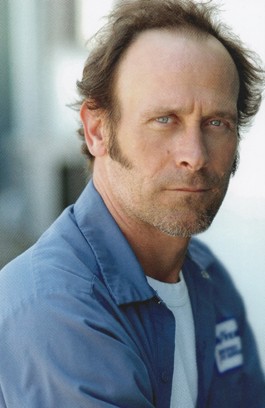Hank Williams was a prolific songwriter who accomplished more in his short 29 years of existence than most artists do in 70 years or more. His lyrics were concise, clever and crammed with deeply felt poetry. From “Jambalaya” to “Your Cheatin’ Heart,” from “Lost Highway” to “I’m So Lonesome I Could Cry,” Hank Williams produced some of the best songs ever written. Still, none of that excuses him for drinking and drugging himself into oblivion before the age of 30, throwing away his life and his talent as hungrily as he once took the stage of the Grand Ole Opry.
In Hank Williams: Lost Highway, which just began a three-week run at Santa Rosa’s Sixth Street Playhouse, there is an underlying sense of anger and disappointment that seems perfectly suited to the story of the self-described hillbilly singer from Alabama who rose to fame and fortune but didn’t know how to stop his pain.
Written by Randal Myler and Mark Harelik and directed by Elizabeth Craven, Hank Williams: Lost Highway is at times maddeningly vague, giving plenty of details but little explanation, as Williams moves from a fledgling radio singer to full-fledged superstar to unemployable alcoholic. The script does little to clarify the reasons for such self-destructive behavior.
Oddly, the play entirely ignores Williams’ childhood bout with spina bifida, which resulted in excruciating lifelong pain and was very likely the reason for the singer’s aggressive self-medication. As a result of this omission, Williams’ death, the announcement of which begins the show, seems less a tragedy than a stupid mistake—and perhaps that is, in the end, the point of the show. In accusing the tormented genius of destroying himself for no good reason, it rescues Williams from those who have since turned his pointless death into a sign of outlaw rebellion.
None of these musings are to say that Hank Williams: Lost Highway is not hugely entertaining. The show steams along at a furious pace, carried on a wave of great dialogue (“She could melt wax off a Dixie cup at 50 feet”; “If that don’t beat the cat backwards”) and fueled by the power of Williams’ tunes, performed by a band of musicians who also step in as the various real-life members of Williams’ band, the Drifting Cowboys.
On a beautifully detailed triptych set by David Lear, the musical numbers are performed on a raised bandstand, flanked on one side by the splintery, knockabout shack of Williams’ childhood mentor Tee Tot (Arnold House) and, on the other, by the shiny-tiled truck stop cafe from which a world-weary waitress (Kendall Carroll) makes the occasional wry remark about Williams’ various scandals and successes.
As Mama Lillie, Williams’ devoted and steel-minded mother, Mollie Boice is sensational, alternately hilarious and scary, never more so than, while packing up her dead son’s belongings at the start of the show, she proudly states, “This shirt cost more than my front porch!” John Craven, as Williams’ manager Fred “Pap” Rose, is the calm, wise heart of the story, providing the power and strength that, for a while, allows the troubled performer to do his best work. Also good is Shannon Rider Urquhart as Miss Audrey, Williams’ sexy and ambitious first wife (the play never mentions Williams’ second wife, Billie Jean, whom he married less than three months before his death).
But the heart of the show is Tahmus Rounds, who embodies Williams’ singing voice and country-drawl mannerisms with uncanny accuracy. He’s got it all: the sound, the moves, the attitude and (with the help of Pamela Johnson’s first-rate costumes) the look. Most importantly, Rounds acutely captures Williams’ palpable inner pain. He manages to fill in the blanks left by the script, suggesting the unspoken anguish that moved the man to write such lyrics as, “Did you ever see a robin weep when leaves began to die? / That means he’s lost the will to live / I’m so lonesome I could cry.” That same aching lonesomeness fills every moment of Hank Williams: Lost Highway, and like the music Williams left behind, will not be easy to shake off.
‘Hank Williams: Lost Highway’ runs Thursdays&–Sundays through Feb. 7. Thursday&–Saturday at 8pm; Saturday&–Sunday at 2pm. Sixth Street Playhouse, 52 W. Sixth St., Santa Rosa. $15&–$35. 707.523.4185.
Museums and gallery notes.
Reviews of new book releases.
Reviews and previews of new plays, operas and symphony performances.
Reviews and previews of new dance performances and events.











